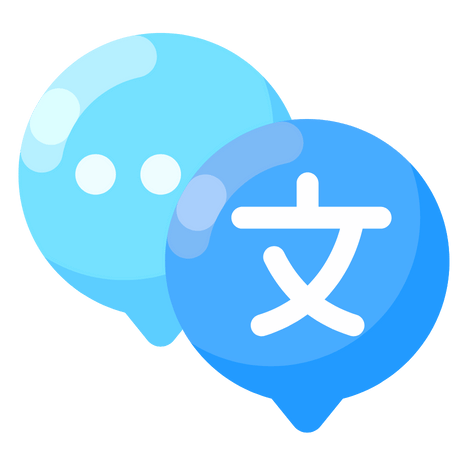Korean translation has become an essential service for companies and individuals wishing to communicate effectively with the Korean market. Whether for professional documents, websites or applications, it’s crucial to call on reliable and competent services. Let’s explore the key aspects of Korean translation and the solutions available to meet your language needs.
Comprehensive professional Korean translation services
Specialized translation agencies offer a full range of services to meet the diverse requirements of Korean translation. These include:
- Translation of commercial and technical documents
- Localization of websites and applications
- Interpreting for meetings and conferences
- Translation of marketing and advertising content
- Subtitling and dubbing services
The range of fields covered is impressive, from automotive to medical, finance, legal and market research. This versatility enables customers to find a single point of contact for all their Korean translation projects.
Translation companies generally offer different levels of service to suit the budget and requirements of each project:
| Service level | Features |
|---|---|
| Basic | Simple translation for general comprehension |
| Standard | Professional translation for everyday use |
| Professional | High-quality translation with thorough revision |
| Premium | Expert translation with extensive cultural adaptation |
The flexibility of our services enables customers to choose the solution best suited to their needs and budget, while guaranteeing the quality of their Korean translation.
Experts in your field: the key to successful Korean translation
The quality of a Korean translation depends largely on the expertise of the translators. The best translation agencies rigorously select their professionals according to strict criteria:
- Degree in translation or specialized field
- Minimum 5 years’ experience in translation
- Successful completion of in-depth language proficiency tests
- In-depth knowledge of Korean culture
These experienced native Korean translators are able to grasp the linguistic and cultural nuances essential to a faithful and effective translation. Their expertise in specific fields guarantees the technical and terminological accuracy of translations.
The use of state-of-the-artcomputer-aided translation tools complements human know-how. These technologies ensure terminological consistency and optimize delivery times, even for urgent projects. The combination of human expertise and technology thus offers a high-quality Korean translation service, adapted to the demands of the modern professional world.

The rise of Korean culture and its impact on translation demand
The growing popularity of Korean culture, known as Hallyu or the “Korean wave”, has considerably increased demand for Korean translation services. This cultural trend encompasses various aspects:
- K-pop music
- TV series (K-dramas)
- Korean cinema
- Korean cuisine
- Korean fashion and cosmetics
This explosion of interest in Korean culture has created new opportunities for companies wishing to penetrate the Korean market or attract Korean consumers internationally. South Korea has become a major economic player, positioning itself as the UK’s 4th largest Asian customer, for example.
For companies seeking to capitalize on this trend, a professional Korean translation is essential. It enables you to :
- Adapt products and services effectively to the Korean market
- Communicate authentically with Korean audiences
- Respect the cultural norms and expectations of Korean consumers
- Stand out from the competition through precise, culturally relevant communication
Korean translation is more than just converting words. It requires an in-depth understanding of Korean culture, history and linguistic subtleties. For example, the Korean language uses a complex system of honorific language that reflects social and hierarchical relationships. An accurate translation must take these nuances into account to avoid any cultural faux pas.
Meeting the challenges of Korean translation
Korean translation presents unique challenges that require special expertise. The complexity of the Korean language manifests itself on several levels:
- Syntax very different from that of Western languages
- A unique writing system (Hangul) with numerous characters
- Cultural nuances deeply rooted in the language
- Idiomatic expressions that are difficult to transpose
To overcome these obstacles, professional translators draw on their linguistic and cultural expertise. They also use specialized neural machine translation tools, such as Naver’s Papago, particularly recommended for the Korean language.
These tools offer advanced features such as :
- translation of complete texts and websites
- Real-time translation of conversations
- Offline mode for use without an Internet connection
- Korean cultural specificities taken into account
However, even with these high-performance tools, human intervention remains crucial. Professional translators fine-tune machine translation results to ensure accurate cultural adaptation and natural communication.
In conclusion, professional Korean translation is an essential investment for any company or organization wishing to establish a solid presence in the Korean market or communicate effectively with a Korean audience. By combining human expertise, cutting-edge technology and in-depth cultural understanding, Korean translation services offer a reliable gateway to new opportunities in the dynamic and exciting world of Korean culture and business.
